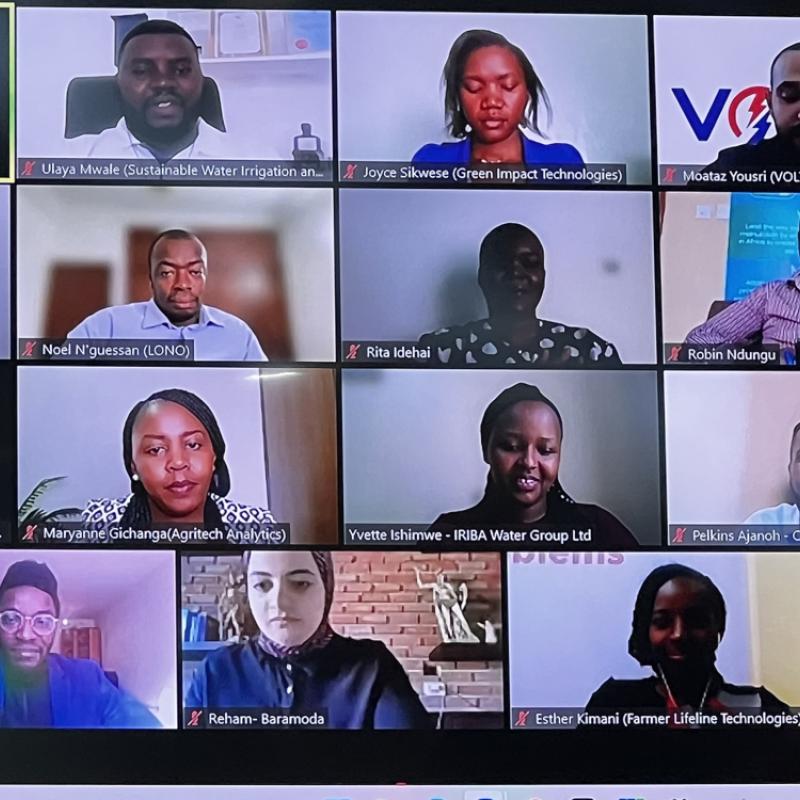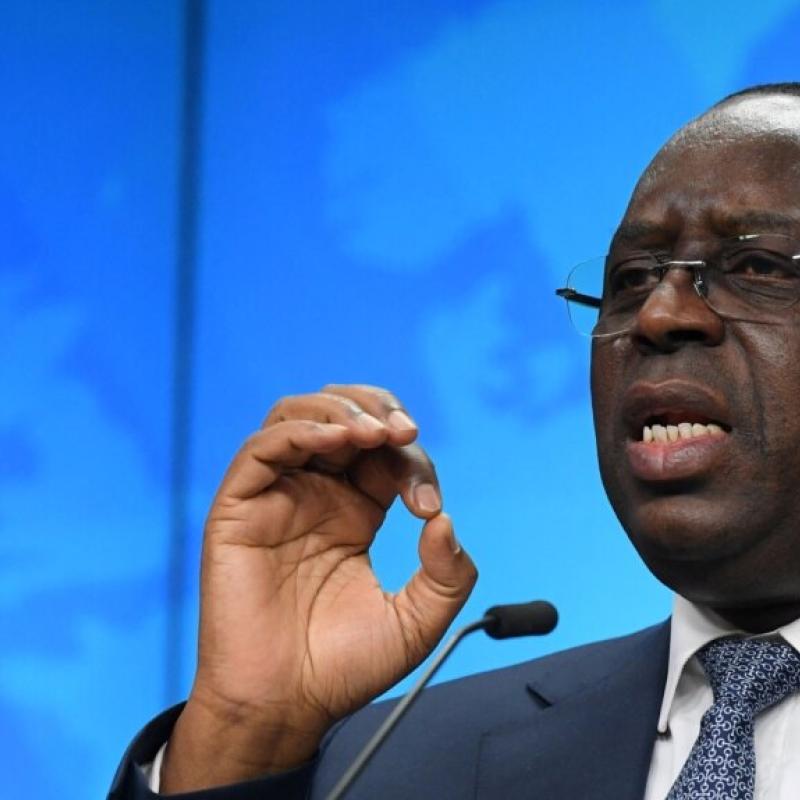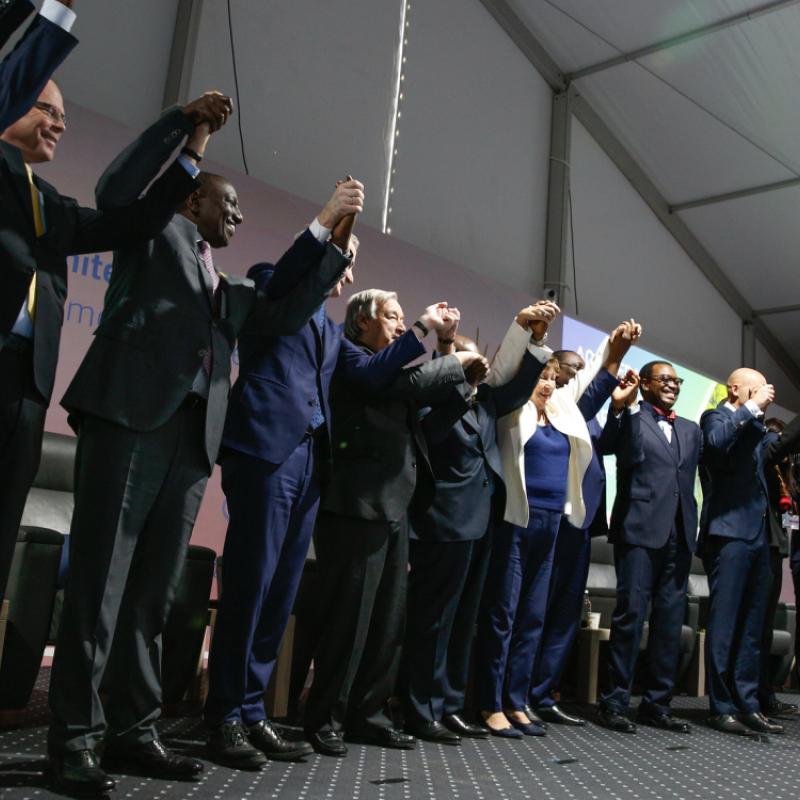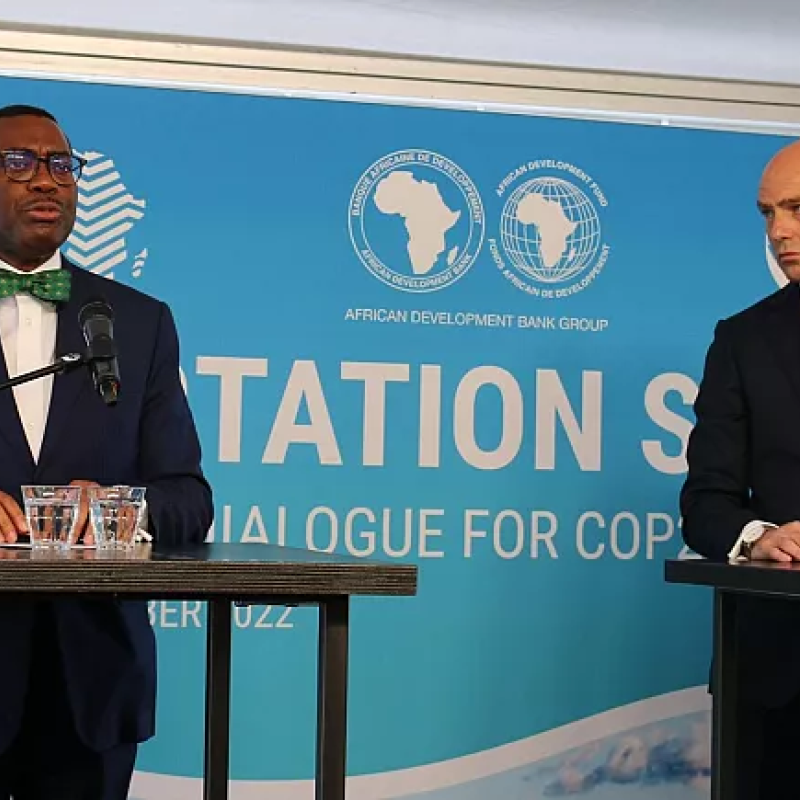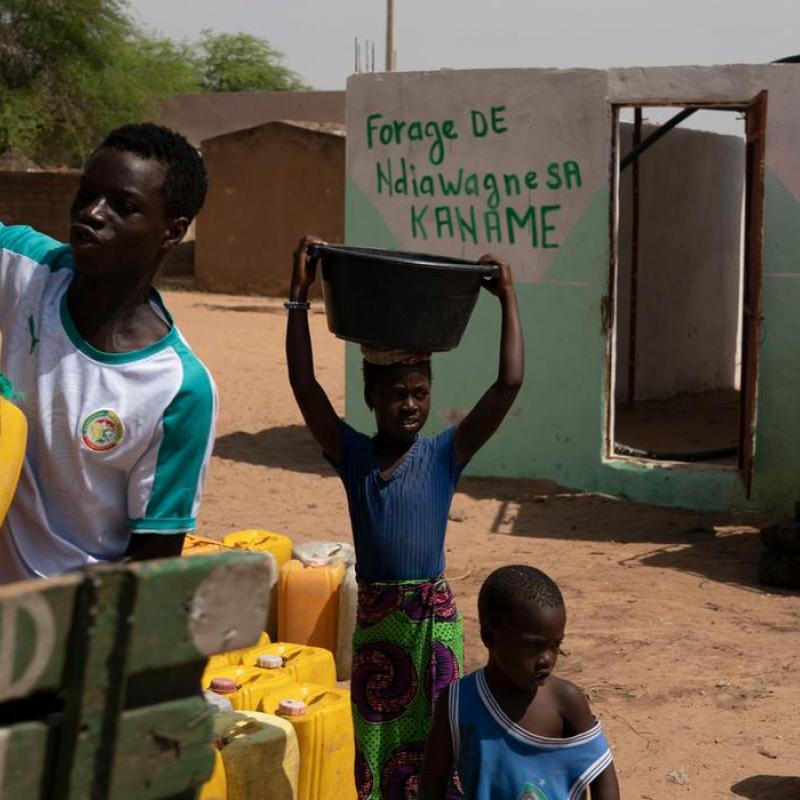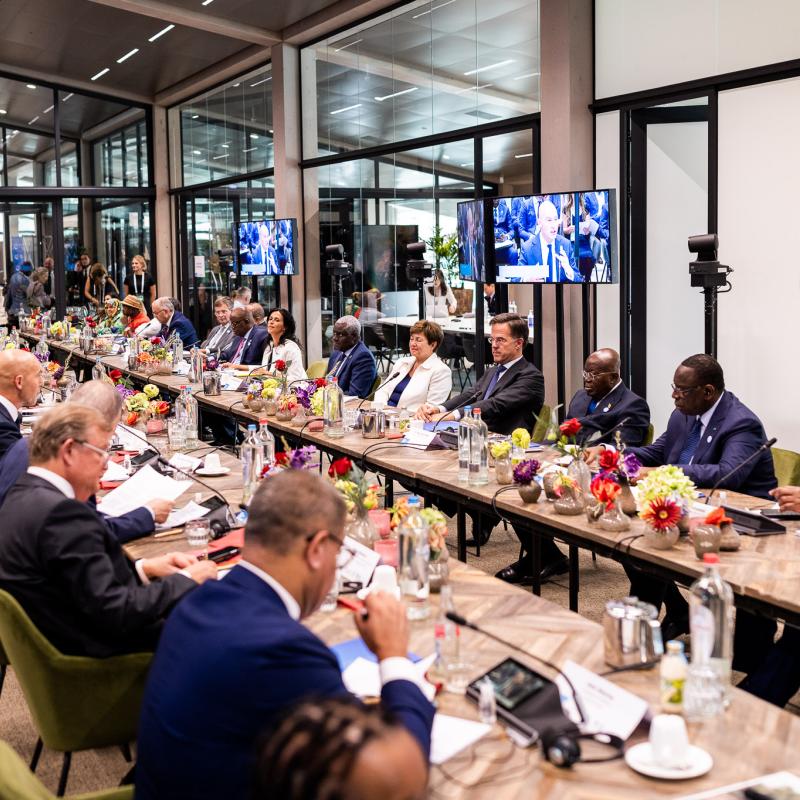
AAAP in the Media
Displaying 1 - 12 of 21
Ghana: Roadmap for Resilient Infrastructure in a Changing Climate
The preparation of this resilient infrastructure roadmap has benefited greatly from the expertise provided by the Government of Ghana through its Technical Working Group for this study. This group comprised experts and stakeholders across a wide range of professions, knowledge and practice communities who participated in consultations, meetings, and workshops, while providing the data and information required to achieve this final output.
Climate risk regulation in Africa’s financial sector and related private sector initiatives
Extreme weather phenomena such as rising temperatures and the increasing frequency of droughts and floods are affecting lives and livelihoods in Africa. According to the Global Climate Risk Index 2021,1 five African countries ranked among the 10 countries most affected by extreme weather in 2019: Mozambique (first), Zimbabwe (second), Malawi (fifth), South Sudan (eighth), and Niger (ninth).
AAAP strategic support to Ghana
Ghana is vulnerable to increasing aridity, droughts and extreme rainfall events and flooding , and faces significant challenges from a changing climate to its ecology, economy, and society. In addition, Ghana has a high degree of risk to natural hazards and disasters. The country is exposed to risks from multiple weather-related hazards, primarily those due to floods and droughts in the Northern Savannah belt. There are also risks related to coastal resources, including storm surges and coastal erosion as well as landslides, earthquakes, pest infestations, and wildfires. Between 1991 and 2011 the country experienced seven major floods. In 2010, floods in the White Volta River Basin affected hundreds of thousands of people and destroyed many of their livelihoods. Urban floods also regularly impact major cities. Current development dynamics and demographic changes in Ghana further compound the risk of disasters. These dynamics are related to rural poverty, rapid urbanization, and environmental degradation. Agriculture and livestock, two sectors most impacted by weatherrelated hazards, constitute the foundation of Ghana’s economy and employ 55% of the economically active population . Climate change and variability are already affecting Ghana’s water resources with damage and flood exposure projected to result in $160 million annually.
African and other global leaders meeting in Rotterdam say the continent is at a tipping point for climate adaptation action
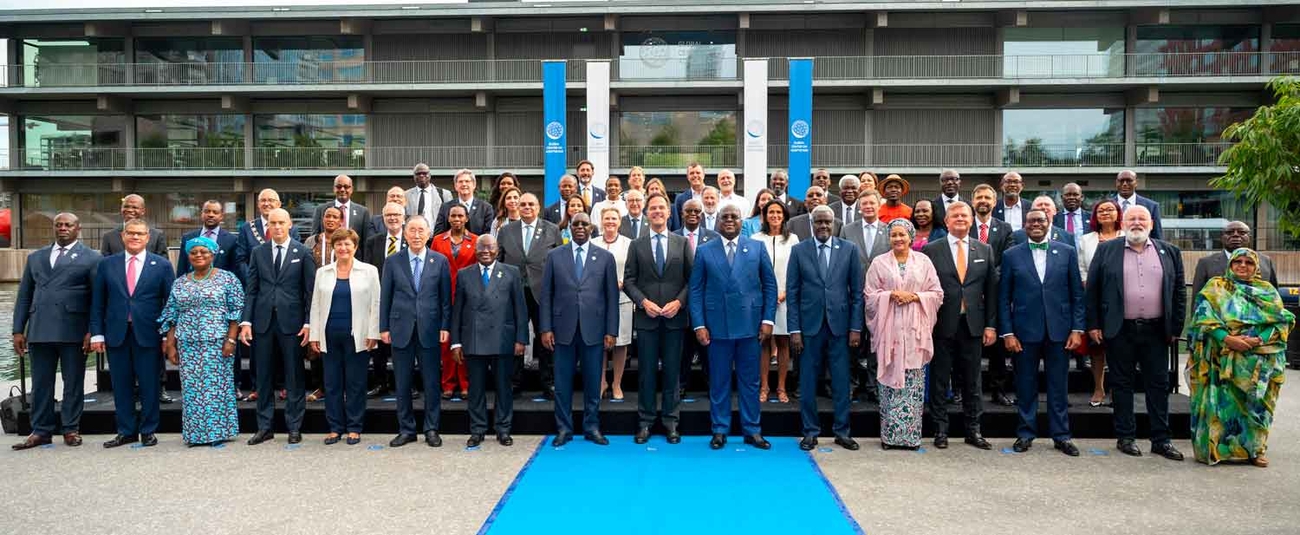
Two months to the 27th global climate summit (COP27) in Sharm El-Sheik, Egypt, African and other global leaders have rallied in Rotterdam, to highlight the urgency of climate adaptation funding for the continent.
The meetings—co-convened by the President of the African Development Bank Group Dr Akinwumi Adesina, CEO of the Global Center on Adaptation (GCA) Professor Patrick Verkooijen, and African Union Commission Chair Mousa Faki Mahamat—was unanimous about the need for concrete action and finance.
Former UN Secretary General Ban Ki-moon and GCA Co-Chair said: “The world has a fever. It burns hotter and higher with every day that passes… Statistics tell us that Africa is where the fever is at its most intense and people at the most vulnerable.”
GCA Co-Chair and Honorary Chairman of Royal DSM Feike Sijbesma spoke about the importance of support from the global private sector. He said 80% of the funding for adaptation needs to come from the private sector in both the developed north and the developing south.
GCA Chief Executive Officer Patrick Verkooijen emphasized the disastrous impacts of climate change hitting all parts of the world. He said it is in Africa, however, that climate shocks will hit the hardest. He said Africa was resolute about its economic advancement and would not stop. “Adaptation in Africa is like climbing a mountain. With all of you here today, we have the dream team that will climb the mountain together.”
Verkooijen added: “The next summit after today is Sharm El-Sheikh, the Africa COP. But success in Egypt will hinge on whether Africa’s needs are met or not. Africa has the commitment and the plan. That plan is the Africa Adaptation Acceleration Program (AAA-P). It is Africa-developed and Africa-owned. It was launched by Africa’s leaders, who are here today. It is the vehicle for delivering the Africa Adaptation Initiative.”
Established in 2020 by the GCA and the African Development Bank, the Africa Adaptation Acceleration Program lies at the center of climate action on the African continent. Participants acknowledged Verkooijen’s and Adesina’s joint efforts as the driving forces behind the program.
African Union Chairperson, President Macky Sall of Senegal, President Nana Akufo-Addo of Ghana, who is Chair of the Climate Vulnerable Forum, and President Felix Tshisekedi of the Democratic of the Congo conveyed a unified message: the international community must deliver on its pledge to double adaptation finance and to scale adaptation action for Africa.
President Sall expressed disappointment at the absence of industrialized country leaders at the summit. The African Union Chair said if African leaders could be in Rotterdam in person to discuss such a crucial issue as climate adaptation in Africa, the very least they expected was that their European counterparts—whose countries are among the world’s biggest polluters—would also have been present at the summit.
This sentiment was shared by Presidents Akufo-Addo and Tshisekedi, African Union Commission Chairperson Moussa Faki Mahamat and UN Deputy Secretary General Amina Mohammed, among others. Mohammed said: “A bird only flies with two wings, and the representation at this table is lopsided.”
The UN deputy chief added that it was not Africa’s fault that it is in its current position, given that it contributes very little to global carbon emissions. She pondered on what the situation would have been if the roles had been reversed. Mohammed said the COP26 Glasgow pact was at risk of failing if the developed world did not make good on its promises of delivering $100 billion a year for climate action in developing countries.
In his intervention(link is external), Adesina reminded participants that the African continent was warming faster than any other region of the world, as predictions from the Intergovernmental Panel on Climate Change show that the critical global warming levels will be reached much earlier in Africa.
The African Development Bank chief explained that in the face of the deluge, Africa does not have the resources to tackle climate change. He said the continent receives only 3% of global climate financing. He noted that if this trend continued, Africa’s climate financing gap could reach between $100 billion to $127 billion per year through 2030.
Adesina said: “The current climate financing architecture is not meeting the needs of Africa. New estimates by the African Economic Outlook of the African Development Bank show that Africa will need between 1.3 and 1.6 trillion dollars from 2020 to 2030, or $118 billion to $145 billion annually to implement its commitments to the Paris Agreement and its nationally determined contributions.”
The African Development Bank chief said the African Adaptation Acceleration Program’s upstream facility at the GCA had already helped to generate $3 billion of mainstreamed climate adaptation investments by the African Development Bank, from agriculture to energy, transport, water, and sanitation.
Adesina spoke of the African Development Bank’s African Development Fund (ADF), its concessionary lending arm as one of the ways to address the climate financing gap. He said the 16th replenishment of the fund, currently underway, presented a unique opportunity for full financing of the $12.5 billion in financing for the Africa Adaptation Acceleration Program.
The African Development Bank chief explained that the African Development Fund had introduced a Climate Action Window that would hopefully mobilize $4 billion to $13 billion for climate adaptation for the Fund’s member countries. “This will be used to support 20 million farmers with access to climate resilient agricultural technologies, access of 20 million farmers and pastoralists to weather-indexed crop insurance, reviving 1 million hectares of degraded land, and provision of renewable energy for about 9.5 million people.
Adesina said commitments by developed countries to provide $100 billion annually in climate finance for developing countries was long overdue. “Africa cannot wait,” he emphasized. “This is the time to support the Africa Adaptation Acceleration Program. This is the time to support the ADF 16th replenishment. This is the time to support the Climate Action Window of ADF-16.”
World Trade Organization Director General Ngozi Okonjo-Iweala also lent her voice to the clarion call for additional resources for Africa adaptation funding. Speaking about the role of trade in climate adaptation, she said trade policies should be integrated into global climate action as an amplifying force for financing and other climate-related support provided to vulnerable economies.
The summit’s five-point Communique(link is external) highlighted that Africa was at a tipping point. It emphasized that success at COP27 will depend on whether the needs of Africa, the world’s most climate-vulnerable continent, are met with finance flowing into such key country-led adaptation programs as the Africa Adaptation Acceleration Program.
GCA Co-Chair Feike Sijbesma said in closing: “Investments in global climate adaptation cooperation are a big opportunity for countries like the Netherlands to share some of our best innovations with those who need them the most. The AAAP will be a crucial vehicle for triggering far greater business investment across Africa into green and resilient solutions. This is a collective effort, we need every sector, every contribution possible to see off the climate crisis in Africa, and the private sector, in particular, has a massive role to play.”
20 young African entrepreneurs bag $100,000 each to boost their climate adaptation businesses
African leaders aim to put climate finance top of COP27 agenda
Millions pledged at Africa adaptation acceleration event
Rich nations pledge funds at Africa climate crisis summit
African leaders push to secure climate adaptation funding
Ghana National Infrastructure Risk and Resilience Assessment
As a result of climate change Ghana is expected to experience more acute climate hazards such as flooding, as well as more frequent and intense droughts. This threatens the socio-economic development that has helped Ghana to become a middle-income country. Climate-related extreme events have the potential to put years of progress toward growth and development targets at risk.
To safeguard and enhance its national development, it is essential that Ghana adapts to the
expected harmful impacts of climate change. This includes adaptation of key infrastructure
sectors, which form the backbone of Ghana’s economy and society and play a central role in
underpinning its future development. Such adaptation will have to be predicated on sound research and assessments
In an effort to mitigate the impact of climate change on Ghana’s infrastructure systems, in July 2020 the Government of Ghana and the Global Center on Adaptation decided to undertake a national assessment of the impacts of climate change on Ghana’s national infrastructure and to identify adaptation measures to mitigate these impacts. The assessment identified 35 adaptation project concepts to address the overarching climate risks to energy, transport and water infrastructure.
The objectives of the project are to complete a climate hazard and risk assessment and a City Scoping Study for Accra. Specifically:
- To systematically assess the need for climate adaptation in the energy, water and transport sectors, in high-resolution, across the whole of Ghana
- To collaboratively plan a prioritised roadmap of appropriate, government-led investments and policies to respond to key needs, and to present these adaptation options as a series of project concept notes
- To strategically identify potential sources of financing for the project concepts in the roadmap to help advance them from concept phase to feasibility studies and, ultimately, implementation.
- Inform future discussions surrounding climate adaptation investments.
- Technical guidance to firms towards developing well-informed analyses.
- Ghana has a completed climate hazard and risk assessment and Accra has a completed City Scoping Study.
Ghana establish and maintain and research and information base to advice and inform infrastructure planning.
These studies will be combined with the National Climate Risk Assessment carried out by the Infra/NBS team and will be presented at a future Ghana Investors Roundtable.
-
A Risk-Informed Urban Planning process for the Accra Metropolitan Assembly region through to 2050 established for the Accra metropolitan area;
USD 110,000
Winners of the 2021 YouthADAPT Challenge acquire skills to accelerate climate adaptation innovation and create green jobs

Winners of the Africa Adaptation Acceleration Program’s 2021 YouthADAPT Challenge have received training to equip them to produce and scale climate-related innovation and create green jobs.
The challenge competition awards business grants of up to $100,000 to young entrepreneurs and micro, small, and medium-sized enterprises in Africa to develop innovative solutions on climate adaptation and resilience.
During the three-day workshop, the 2021 winners – 10 representatives of enterprises from Ghana, Nigeria, Cameroon, Kenya and Zambia – received training in financial management and fundraising. Winning enterprises also received training on budgeting and cash flow projection, record keeping, and executing solid business plans.
The 10 entities are developing solutions in critical social and economic sectors affected by climate change, including agriculture; waste management; water resources and sanitation; renewable energy and energy efficiency; waste management and ecosystem restoration. Half of the enterprises are women-led businesses.
The training also instructed participants in how to position their enterprises in the market in order to offer an attractive funding proposition.
Ifeoluwa Olatayo of Soupah Farms-en-market in Nigeria, said she learned a lot during the training, including “how best to review the company’s finances and budget against unexpected shortfalls.”
Another participant, Juveline Ngum Ngwa of Mumita Holdings Limited in Cameroon, acknowledged the importance of budgeting in her enterprise’s overall success and security. “It allows us to better understand whether our business has enough revenue to pay its expenses,” Ngum Ngwa said.
Carolyne Mukuhi of Kimplanter Seedlings in Kenya said: “We look forward to this great journey towards a successful, impactful climate-adaptable business. A great world together.”
In addition to the training, the winning enterprises will be provided with mentorship and support to expand partnerships, knowledge sharing and learning through a network of young entrepreneurs in climate adaptation. The challenge also offers its winners an opportunity to participate in a 12-month business accelerator program to help them scale up their businesses, deepen their impact and create decent jobs.
An annual competition, the challenge falls under one of the pillars of the Africa Adaptation Acceleration Program, namely empowering youth for entrepreneurship and job creation in climate adaptation and resilience. The strategic goal is to strengthen inclusive growth and broaden investment and economic opportunities for youth in Africa by providing training, mentorship, and financing to youth-led businesses.
The Africa Adaptation Acceleration Program is a partnership between the African Development Bank and the Global Center on Adaptation.
The African Development Bank’s contribution to the YouthAdapt Challenge was sourced from the Youth Entrepreneurship and Innovation Multi-donor Trust Fund.

